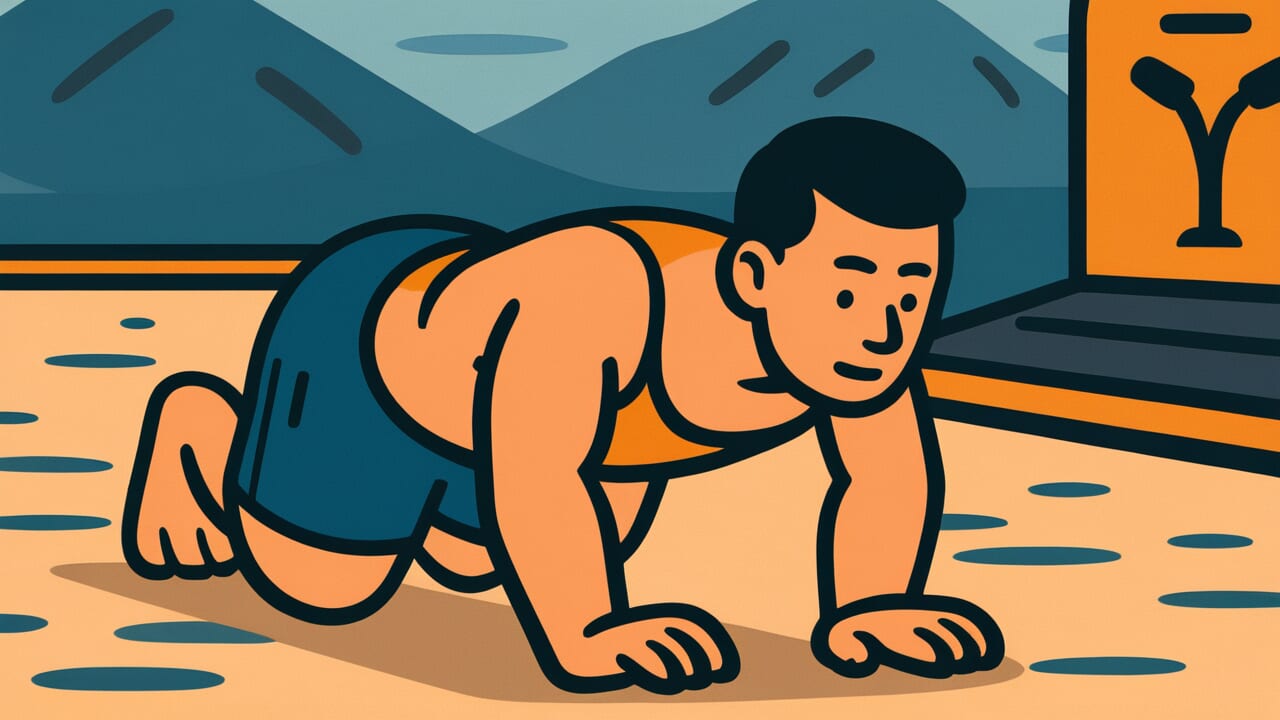How to Read “A short man’s push-ups”
Kootoko no udetate
Meaning of “A short man’s push-ups”
“A short man’s push-ups” is a proverb that means even someone with a small body can have excellent arm strength and work ability.
It describes people who possess surprising strength despite their appearance.
This proverb is used when there’s a big gap between how someone looks and their actual abilities.
It applies when a person with a small build, who was assumed to be weak, turns out to be surprisingly strong or excellent at their work.
Even today, people tend to judge others by their appearance. But in reality, physical size and actual ability don’t always match.
This proverb teaches us the importance of seeing someone’s true abilities without being trapped by preconceptions.
It remains meaningful both as encouragement for smaller people and as a warning for those who evaluate others.
Origin and Etymology
No definite historical records remain about the clear origin or first appearance of this proverb.
However, we can make interesting observations from how the phrase is constructed.
The term “kootoko” (short man) has long been used to refer to men of short stature.
Meanwhile, “udetate” is thought to mean actions that demonstrate arm strength or work performance.
While modern people might think of push-up exercises, the “udetate” here likely represents the act of using one’s arms or the appearance of working with arm strength.
In Edo period work sites, preconceptions based on body size were probably strong.
There was a fixed idea that large people were suited for physical labor.
Yet in reality, some small-statured people showed surprising arm strength and work performance.
The proverb likely emerged from observing this reality, expressing the gap between appearance and ability.
In Japanese craftsman culture too, skill and perseverance were often valued more than physical size.
This proverb is thought to reflect such merit-based values.
It has been passed down through generations as wisdom that warns against judging people by appearance.
It teaches the importance of recognizing actual abilities.
Usage Examples
- That new employee is like “A short man’s push-ups” – he looks delicate but carries heavy loads effortlessly
- I judged him by his build, but this was truly “A short man’s push-ups”
Universal Wisdom
Behind the passing down of “A short man’s push-ups” lies insight into a deeply rooted human tendency.
That tendency is our habit of making instant judgments based on appearance.
The human brain has needed quick judgments for survival. The simple formula that large opponents are strong and small ones are weak might have been effective in primitive environments.
But as civilization developed and human society grew complex, this simple standard proved not always correct.
This proverb has survived so long precisely because it points out this essential human weakness.
We rationally know we shouldn’t judge by appearance, yet unconsciously estimate abilities from looks.
When we actually encounter a small person displaying great strength, we feel both surprise and shame at our preconceptions.
Our ancestors recognized this repeating pattern of human error and realization.
That’s why they expressed this truth in concise words and tried to pass it to future generations.
This proverb is a mirror reflecting both our habitual judgments and the wisdom to transcend them.
When AI Hears This
Analyzing push-ups physically, the body functions as “a lever with toes as fulcrum, shoulders as force point, and center of gravity as action point.”
What’s important is that required muscle strength is proportional not just to body weight, but also to the distance from fulcrum to force point (body length).
If height is halved, weight becomes one-eighth, but required torque becomes one-sixteenth.
Let’s look at specific numbers. Compare an adult at 180cm tall weighing 70kg with a child at 90cm tall weighing 10kg.
The adult must generate about 126 newton-meters of torque for push-ups, while the child needs only about 9 newton-meters.
That’s a 14-fold difference. Yet muscle cross-sectional area is proportional to height squared, so adult muscle strength is only about 4 times greater.
The child does push-ups with overwhelmingly less load relative to their muscle strength.
This follows the same principle as architecture. A small model bridge is easy to build, but a full-scale bridge requires enormous reinforcement.
Smaller bodies have structural advantages. Small people can do push-ups easily not through effort or determination, but because physical laws are on their side.
Lessons for Today
What this proverb teaches modern people is the danger of judging others solely by first impressions or external information.
In our SNS-developed era, judgment by appearance has actually accelerated in some ways.
We increasingly decide people’s worth and abilities from profile pictures and visual impressions.
But what truly matters is what someone can actually do and how they actually work.
Whether in job interviews or personal relationships, discerning someone’s essence requires time and observation.
We need an attitude that looks at actual actions and results, not superficial elements like build or appearance.
At the same time, this proverb encourages smaller people and those underestimated by appearance.
Your true value cannot be measured by looks. If you believe in your abilities and steadily build your strength, others will surely recognize it.
Don’t rush. What matters most is continuing to polish your strengths.



Comments